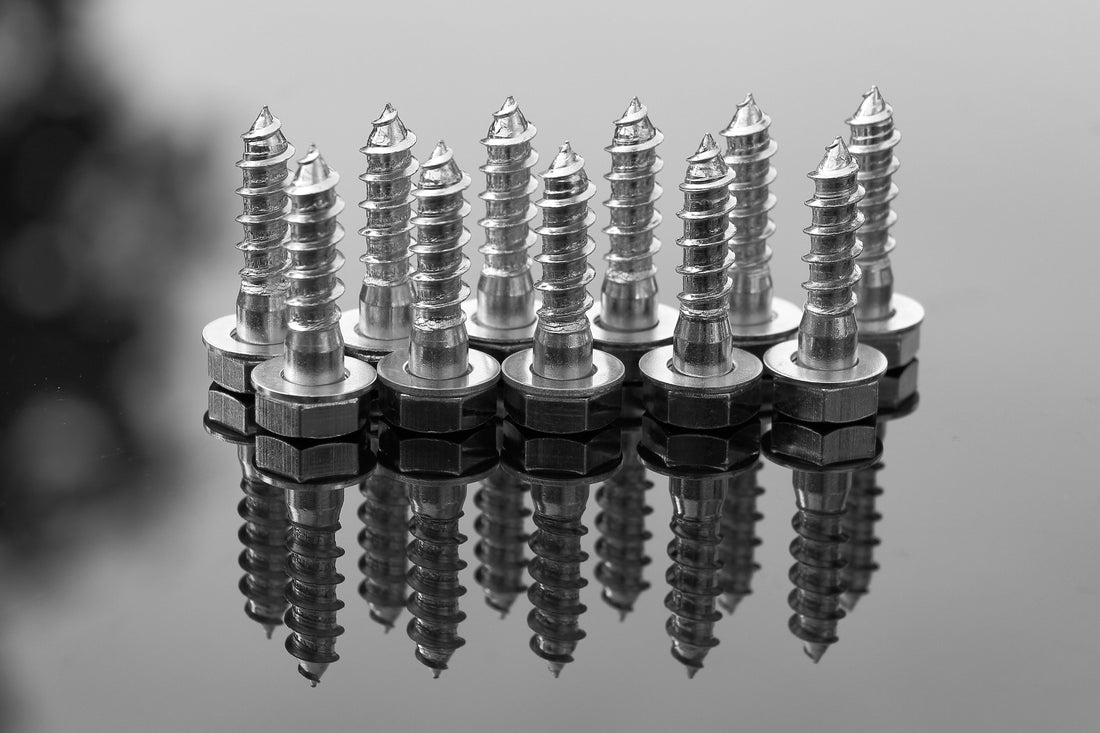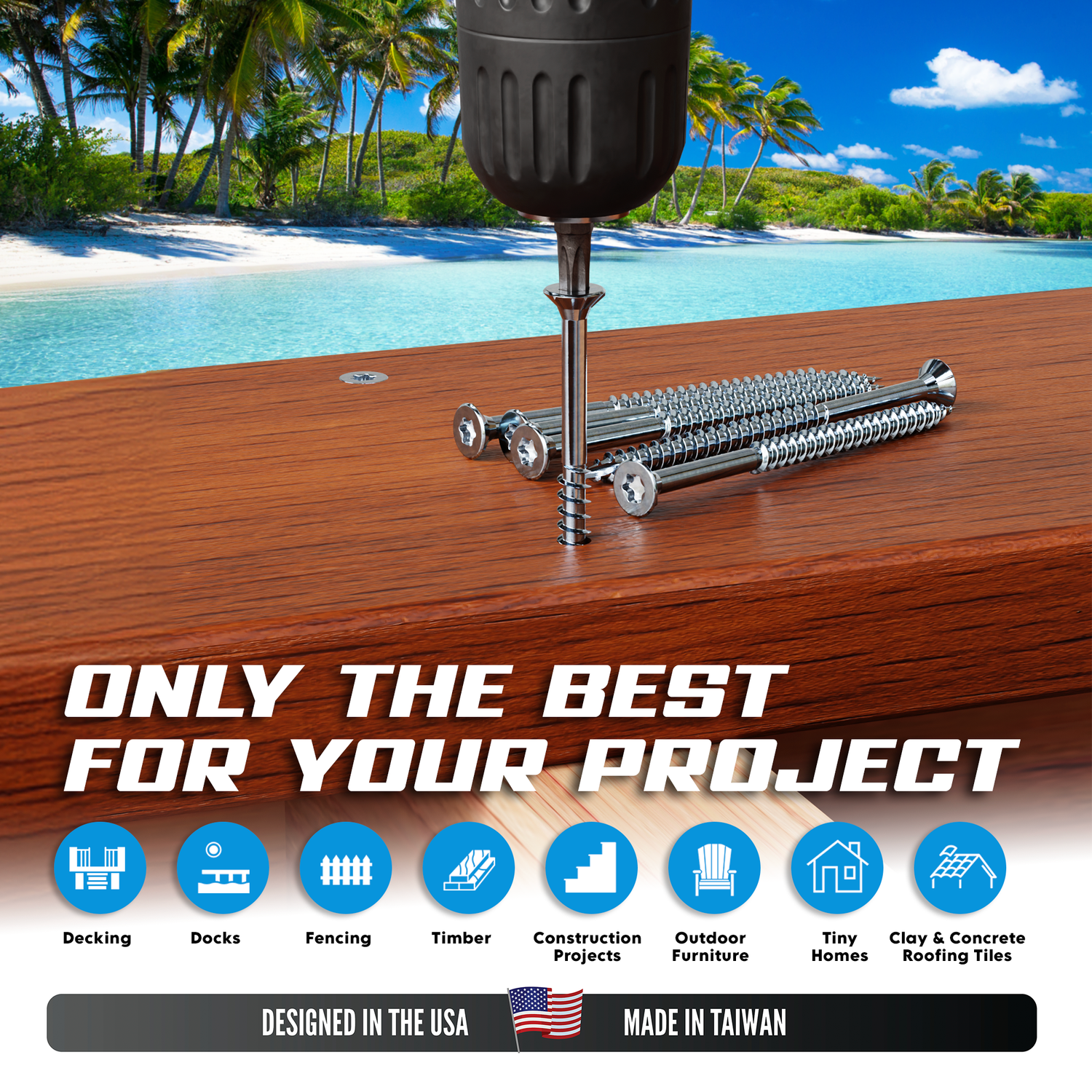
The Differences Between Screw Sizes
Share

When it comes to fastening, the world of screws can be a bit overwhelming with its diverse range of sizes from stainless steel deck screws to wood fasteners. Understanding the differences between screw sizes is crucial for any DIY enthusiast or professional in the construction industry.
Gauge Matters:
Screws are often categorized by gauge, which refers to the screw's diameter. The lower the gauge number, the smaller the diameter. For example, a #6 screw is smaller in diameter than a #10 screw. Knowing the gauge you need ensures the correct strength for the application.
Length Considerations:
The length of a screw is another critical factor. Too short, and it won't provide a secure hold; too long, and it might damage the material. Consider the thickness of the materials you're fastening and choose a screw length that allows for proper penetration without protruding.
Types of Heads:
Screws come with various head types, such as flat, pan, oval, or round. Each type serves a specific purpose. Flat heads sit flush with the material, while pan heads offer a broader surface area for more significant clamping force. Understanding the application helps in selecting the right head type.
Thread Types:
Threads on screws can be coarse or fine. Coarse threads work well with softer materials, while fine threads are suitable for harder materials. Choosing the correct thread type ensures optimal grip and holding power.

Drive Styles:
Different screw sizes come with various drive styles like Phillips, slotted, or Torx. The right drive style not only affects the ease of installation but also the torque that can be applied without slipping.
In the realm of Eagle Claw Fasteners, we understand that the ideal screw goes beyond size; it's about the right length and gauge for the job. Our range offers versatile options tailored to meet the diverse needs of both DIY enthusiasts and construction professionals alike.
The general rule of thumb for selecting screws lengths: The length should be approximately three times the thickness of the timber being fastened. So, the correct length screw to use when fixing a 1” deck board is 3”.
1-5/8" Fasteners:
Perfect for lighter woodworking projects and applications where a shorter length is sufficient. Ideal for attaching trim or securing lightweight materials, these fasteners provide a reliable hold without unnecessary protrusion.
2" Fasteners:
A versatile length suitable for various woodworking tasks. Whether you're assembling furniture or working on smaller construction projects, the 2" fasteners offer a balanced solution, providing ample penetration without compromising the integrity of the materials.
2-1/2" Fasteners:
Stepping up in length, the 2-1/2" fasteners are well-suited for applications requiring a bit more bite. They are ideal for framing, joining thicker pieces of wood, or securing materials where a longer reach is necessary.
3" Fasteners:
Entering the realm of outdoor construction and deck projects, the 3" fasteners prove their worth. Their extended length provides the necessary depth for securing decking boards, framing outdoor structures, and tackling more robust woodworking endeavors.
3-1/2" Fasteners:
When durability is non-negotiable, the 3-1/2" fasteners step in. These longer screws are the go-to choice for heavy-duty outdoor construction. Perfect for attaching ledger boards to structures or securing elements where superior strength is paramount.
4" Fasteners:
The behemoth of the range, the 4" fasteners are reserved for the most demanding tasks. From constructing substantial outdoor structures to handling sizable woodworking projects, these screws offer the length and strength required for the toughest jobs.
Understanding the specific applications for each length in the Eagle Claw Fasteners range empowers you to choose with confidence, ensuring that your project is not only securely fastened but also tailored to its unique requirements. Whether you're a DIY enthusiast or a seasoned professional, having the right length at your disposal makes all the difference in the success of your endeavors.


